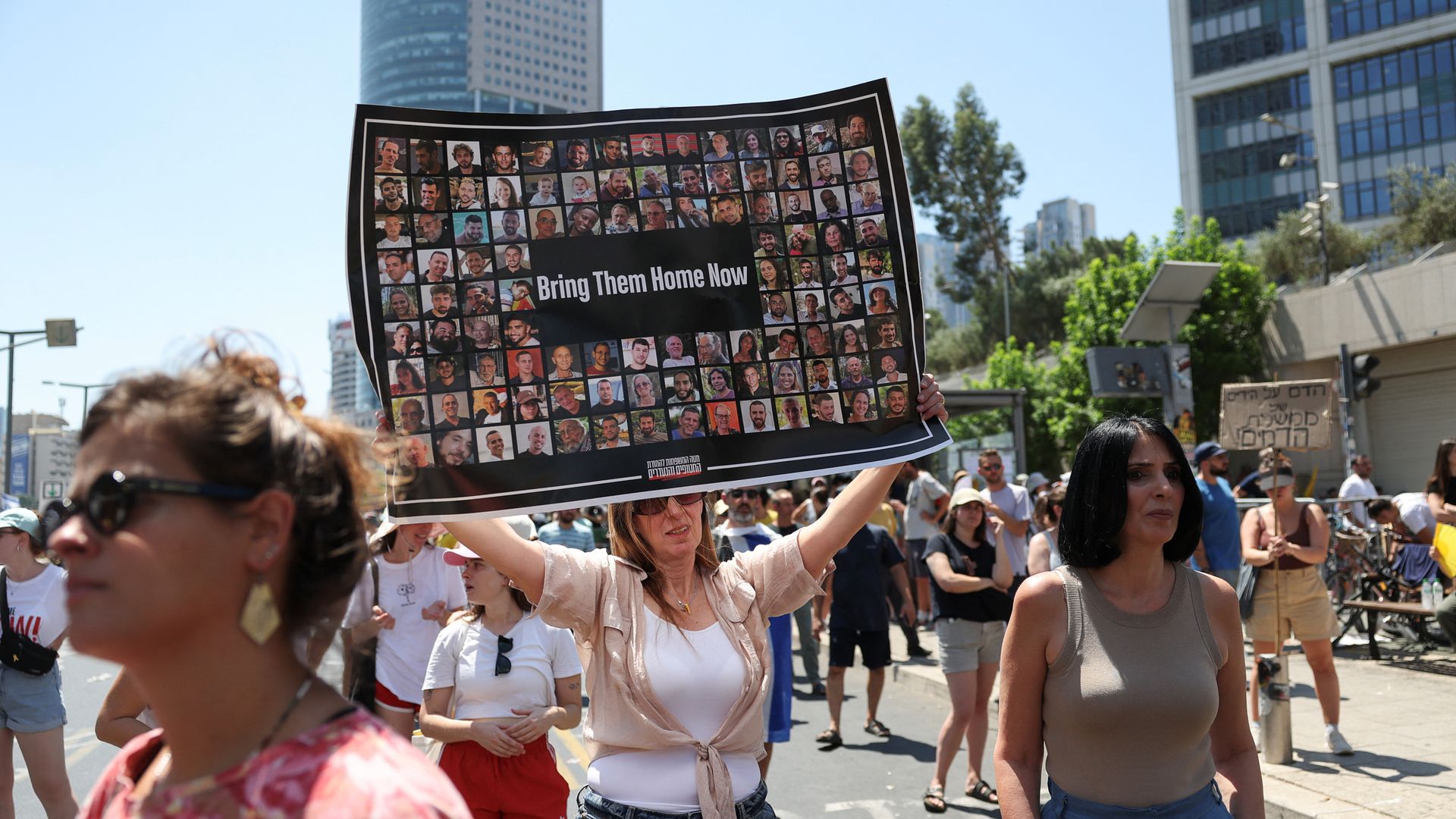The failure to return hostages held in Gaza has led to calls for a general strike that has seen closures around the country.
Hundreds of thousands of Israelis poured into the streets late on Sunday in grief and anger after six hostages were found dead in Gaza.
On Monday, disruptions were reported across Israel including at the main international airport – but the call was ignored in some areas, reflecting deep political divisions.
Later, an Israeli labour court ruled that the general strike must end.
Follow latest: Netanyahu under growing pressure over war
What is a general strike and why are some Israelis calling for one?
Unlike more common workplace strikes, where members of one profession or union take part in industrial action to try and achieve some sort of change, a general strike tends to be more broad.
A general strike will often involve a large coalition of unions and organisations, designed to have a bigger impact than an individual strike.
Israel’s largest trade union, the Histadrut, called for a general strike for Monday, the first since the start of the war.
“The hostage deal is stuck because of domestic political considerations,” the secretary general of the Histadrut Arnon Bar David said at a press conference.
“Instead of a deal, we get body bags. We hope that our intervention might shock those who need to be shocked. I call on the people of Israel to go to the street and sound the cry of the hostages and their families,” he said.
Who are the key players?
Benjamin Netanyahu – Israel’s prime minister and leader of a government rocked by controversy over its handling of the war in Gaza, and what happened leading up to the 7 October attacks.
Hostage families – The Israeli government has faced months of criticism from some of the hostages’ families, who say more should be done to bring the remaining captives home. Sunday’s protests were organised by the Hostage Families Forum.
Histadrut – Israel’s largest trade union, which is calling for a deal to bring the hostages home.
Please use Chrome browser for a more accessible video player
Read more:
Who are the Israeli hostages confirmed dead?
Satellites suggest Israel building long-term Gaza presence
What impact is the ‘general strike’ having so far?
The strike aims to shut down or disrupt major sectors of the economy, including banking, healthcare and the country’s main airport.
Airlines at Ben-Gurion Airport were halting outgoing flights between 8am and 10am local time (6am and 8am UK time).
Those flights either departed early or were slightly delayed, and travellers were seen lining up at check-in counters despite the limited disruption. Arriving flights were continuing as usual during that time, according to the Israel Airports Authority.
Keep up with all the latest news from the UK and around the world by following Sky News
Banks, some large malls and government offices were all closed due to the strike and public transit has been limited.
Municipalities in Israel’s populated central area, including Tel Aviv, were participating in the strike, leading to shortened school hours and cancellations for public daycares.
Many other municipalities, however, including Jerusalem, were not participating in the strike. Israeli media reported that the state appealed to a labour court to cancel the strike, saying it was politically motivated.
Be the first to get Breaking News
Install the Sky News app for free
Court rules on general strike
Representatives for Israel’s biggest trade union, Histadrut, have said Monday’s walkout will end at 6pm today (4pm UK today), local media is reporting.
Initially, it had said strikes would continue until tomorrow morning.
Later on Monday, an Israeli labour court ruled that the general strike must end.
The court sided with the government in its ruling on Monday, saying the strike was politically motivated.
Watch Sky News’ The World with Yalda Hakim from Monday night at 9pm.





